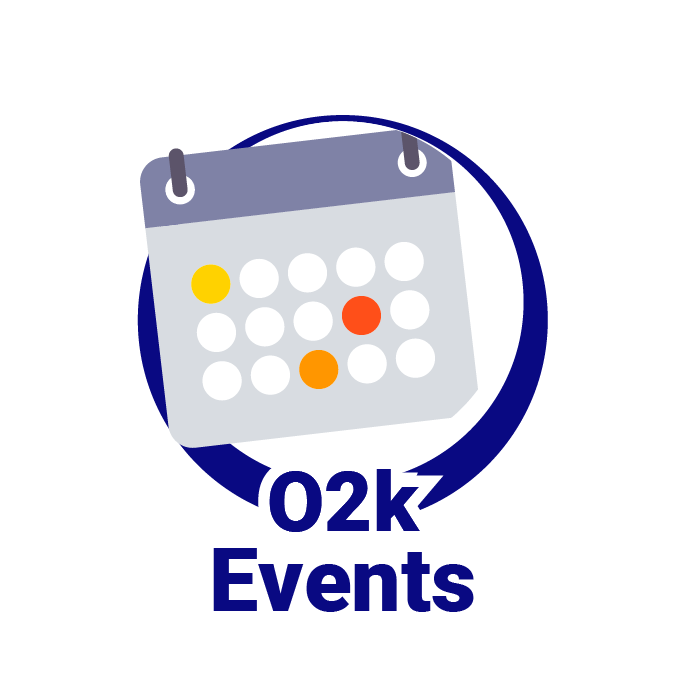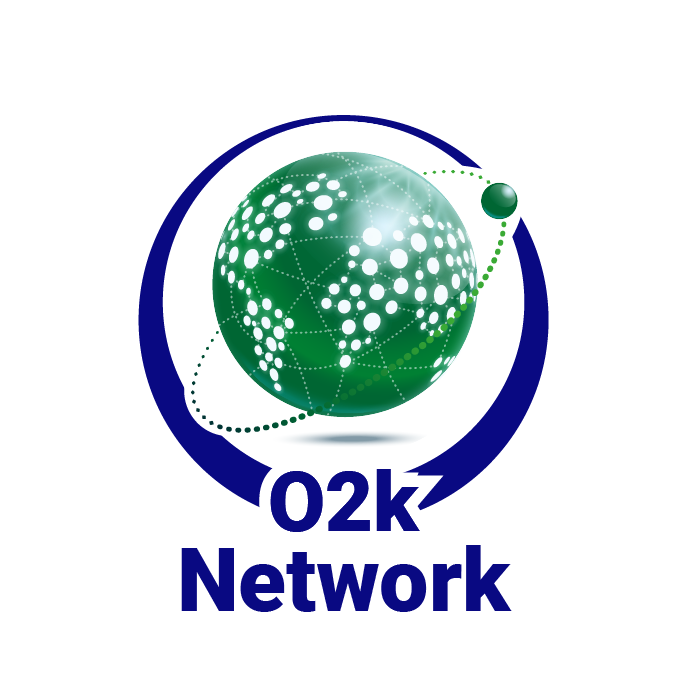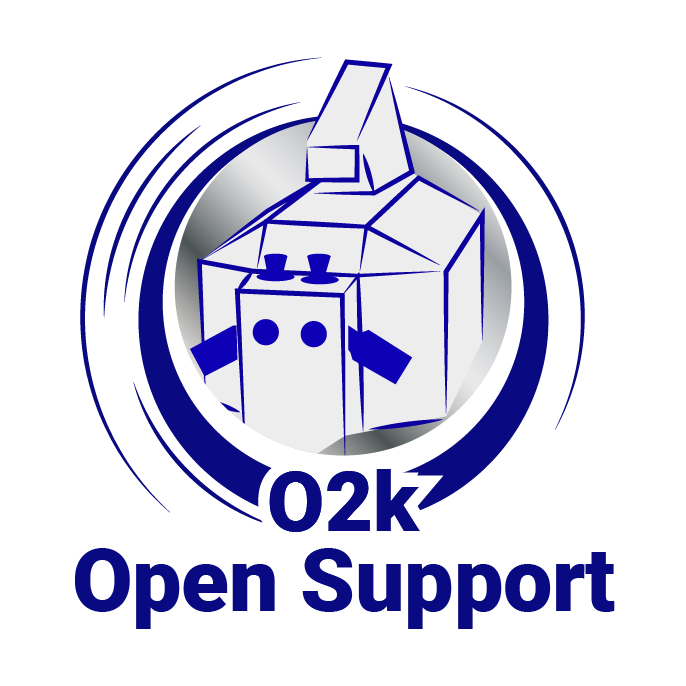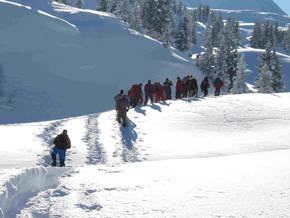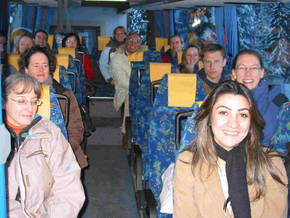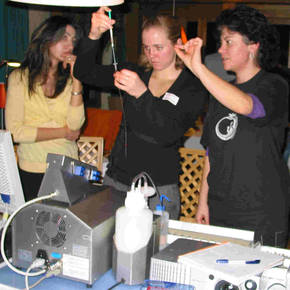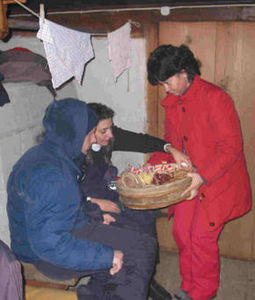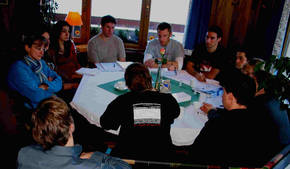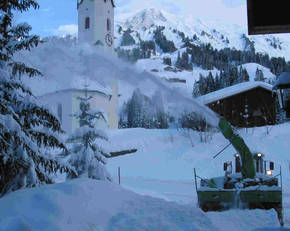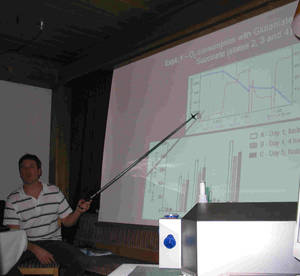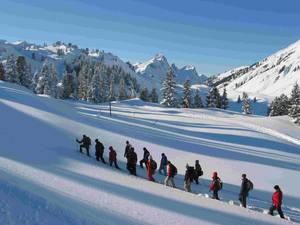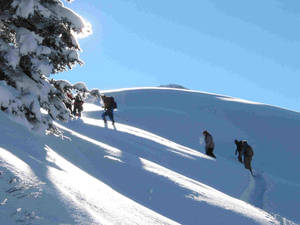Difference between revisions of "MiPNet12.24 IOC44"
| Line 99: | Line 99: | ||
== Feedback == | == Feedback == | ||
'''Questions and answers''' | |||
1.b. Which topics should be covered more intensively? | |||
*'Specific protocols and procedures for cells and isolated mito.' | |||
*'The protocols and the specifications.' | |||
*'Actual protocols/experiments done in labs and what it means.' | |||
*'Perhaps more of the introductory theoretical topics. It seemed like some of the participants were less familiar with this.' | |||
7. Please list some points of the O2k-Course that may be improved: | |||
*'Just and experiment with physiological level of O2 (cells or isolated mitochondria).' | |||
*'Protocols / more technical things / more practical things about DatLab.' | |||
'More about protocols, more presentations.' | |||
*'I personally liked the order of the material presented, but maybe putting electrode service/chamber assembly before the experimentation. | |||
8. Do you have any suggestions how we could improve the course? | |||
*'It is difficult to have a course with both beginners and experienced O2k users. I felt that there were too many basics covered that were appropriately described in the manual. Anyone can read it and work through procedures such as cleaning and assembling the chamber, but the theory and finer points of the technique cannot be read in any manual. I suggest having distinct groups: novice vs. somewhat experienced.' | |||
*'It had beed easier for me as a total O2k and mitochondria beginner to explain first, what happens with which substances. Since most people know about that a handout of the complexes and the basic protocols in the beginning (like 1 slide of Hélène's talk had helped a lot.' | |||
*'Maybe one group with the sampe people during all the course who do everything together step by step.' | |||
*'Maybe more presentations from some of the participants. They could be very short presentations.' | |||
*'More hands-on work.' | |||
10. DatLab Software: Features you want to see / Problems you observed: | |||
*'Its great.' | |||
*'None.' | |||
*'Very user friendly. I don't see any problems yet.' | |||
*'It is quite good and has a lot of smart features.' | |||
*'More templates for various protocols.' | |||
11. The O2k System: Features you want to see / Problems you observed: | |||
*'None.' | |||
*'No problem for the moment.' | |||
*'Would love to do ROS measurements with it.' | |||
General | |||
*'Very positive to me, that I could ask the most stupid questions without feeling stupid. Great, patient team. Good, that groups and team change all the time, everybody stresses other things. Perfect size of the course. Very good how you managed to combine all different levels. I am looking forward to use the O2k and discuss results.' | |||
[http://www.oroboros.at/?ioc44#c3956 Feedback IOC44] | [http://www.oroboros.at/?ioc44#c3956 Feedback IOC44] | ||
== Impressions from the IOC32 == | |||
<gallery mode=default perrow=3 widths="300px" heights="300px"> | |||
File:IOC44 (1).jpg | |||
File:IOC44 (2).jpg | |||
File:IOC44 (3).jpg | |||
File:IOC44 (4).jpg | |||
File:IOC44 (5).jpg | |||
File:IOC44 (6).jpg | |||
File:IOC44 (7).jpg | |||
File:IOC44 (8).jpg | |||
File:IOC44 (9).jpg | |||
</gallery> | |||
[[Image:MitoGlobal.jpg|right|80px|link=http://www.bioblast.at/index.php/MitoGlobal|MitoGlobal]] | [[Image:MitoGlobal.jpg|right|80px|link=http://www.bioblast.at/index.php/MitoGlobal|MitoGlobal]] | ||
O2k-Workshops are listed as [[MitoGlobal Events]]. | O2k-Workshops are listed as [[MitoGlobal Events]]. | ||
Revision as of 11:25, 9 June 2016
MiPNet12.24 IOC44
| OROBOROS IOC44. International course on high-resolution respirometry. Schroecken AT, 12-16 Dec 2007. Mitochondr Physiol Network 12.24: 1-8. |
OROBOROS (2007-12-12) Mitochondr Physiol Network
Abstract: O2k-International course on high-resolution respirometry. Schroecken, Voralberg, Austria; 2007 December 12-16.
- >> O2k-Workshop: Current dates
- >> Product: OROBOROS O2k, O2k-Catalogue
• O2k-Network Lab: AT_Innsbruck_OROBOROS
Labels:
ORO, IOC, 2007
Team and guest tutors
 Gnaiger Erich, CEO, OROBOROS INSTRUMENTS and Medical University of Innsbruck, D. Swarovski Research Laboratory
Gnaiger Erich, CEO, OROBOROS INSTRUMENTS and Medical University of Innsbruck, D. Swarovski Research Laboratory
 Fasching Mario, O2k-Network Lab: OROBOROS INSTRUMENTS
Fasching Mario, O2k-Network Lab: OROBOROS INSTRUMENTS
- Köfler Simone, O2k-Network Lab: OROBOROS INSTRUMENTS
 Lemieux Hélène, O2k-Network Lab: CA Rimouski Blier PU
Lemieux Hélène, O2k-Network Lab: CA Rimouski Blier PU
- Scandurra Francesca M, O2k-Network Lab: OROBOROS INSTRUMENTS
- Subarsky Patrick, O2k-Network Lab: University of Toronto
- Anderson Ethan J, O2k-Network Lab: US NC Greenville Anderson EJ
Participants
| Participant | Institution | |
|---|---|---|
| Gallardo Pérez Esther M | SP Universidad Autonoma de Madrid (SP) | |
| Gusdon Aaron M | US FL Gainesville Mathews CE: The University of Florida College of Medicine (US) | |
| Johnson Leif | SE Lund University (SE) | |

|
Kane Daniel A | CA Antigonish Kane DA: St. Francis Xavier University (CA) |
| Lanza Ian R | US MN Rochester Nair KS: Mayo Clinic School of Medicine (US) | |
| Medina Miguel Angel | ES Malaga Medina MA: University of Málaga (ES) | |
| Nowak Barbara | PL Krakow Dembinska-Kiec A (PL) | |
| Pajuelo-Reguera David | CZ Prague Jezek P: Academy of Sciences of the Czech Republic (CZ) | |
| Ruiz-Perez Maria Victoria | ES Malaga Medina MA: University of Málaga (ES) | |
| Scatena Roberto | IT Roma Scatena R: Policlinico A. Gemelli - Università Cattolica (IT) | |
| Kane Constance L | CA Antigonish Kane DA: St. Francis Xavier University (CA) | |
| Wunderlich Kirsten | SE Lund University (SE) | |
| Zadeh Zahra Ezzat | CA Montreal Hepple RT: Royal Victoria Hospital (CA) |
Feedback
Questions and answers
1.b. Which topics should be covered more intensively?
- 'Specific protocols and procedures for cells and isolated mito.'
- 'The protocols and the specifications.'
- 'Actual protocols/experiments done in labs and what it means.'
- 'Perhaps more of the introductory theoretical topics. It seemed like some of the participants were less familiar with this.'
7. Please list some points of the O2k-Course that may be improved:
- 'Just and experiment with physiological level of O2 (cells or isolated mitochondria).'
- 'Protocols / more technical things / more practical things about DatLab.'
'More about protocols, more presentations.'
- 'I personally liked the order of the material presented, but maybe putting electrode service/chamber assembly before the experimentation.
8. Do you have any suggestions how we could improve the course?
- 'It is difficult to have a course with both beginners and experienced O2k users. I felt that there were too many basics covered that were appropriately described in the manual. Anyone can read it and work through procedures such as cleaning and assembling the chamber, but the theory and finer points of the technique cannot be read in any manual. I suggest having distinct groups: novice vs. somewhat experienced.'
- 'It had beed easier for me as a total O2k and mitochondria beginner to explain first, what happens with which substances. Since most people know about that a handout of the complexes and the basic protocols in the beginning (like 1 slide of Hélène's talk had helped a lot.'
- 'Maybe one group with the sampe people during all the course who do everything together step by step.'
- 'Maybe more presentations from some of the participants. They could be very short presentations.'
- 'More hands-on work.'
10. DatLab Software: Features you want to see / Problems you observed:
- 'Its great.'
- 'None.'
- 'Very user friendly. I don't see any problems yet.'
- 'It is quite good and has a lot of smart features.'
- 'More templates for various protocols.'
11. The O2k System: Features you want to see / Problems you observed:
- 'None.'
- 'No problem for the moment.'
- 'Would love to do ROS measurements with it.'
General
- 'Very positive to me, that I could ask the most stupid questions without feeling stupid. Great, patient team. Good, that groups and team change all the time, everybody stresses other things. Perfect size of the course. Very good how you managed to combine all different levels. I am looking forward to use the O2k and discuss results.'
Impressions from the IOC32
O2k-Workshops are listed as MitoGlobal Events.


